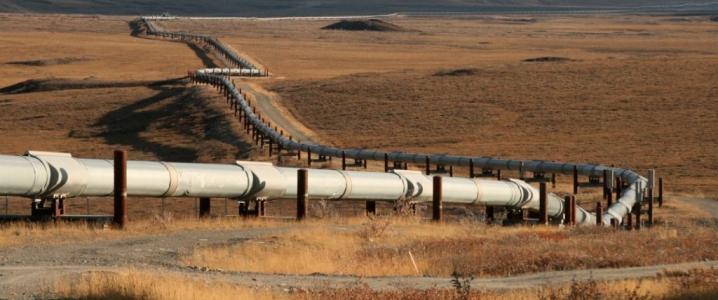Trump To Clear Way For Oil Pipelines

Donald Trump’s victory could ultimately lead to a lot more oil pipelines moving forward, one sector of the fossil fuel industry specifically targeted by environmentalists
The most controversial project right now, the Dakota Access Pipeline, received a jolt from Tuesday’s result. The more than 1,100-mile pipeline, valued at $3.7 billion, would carry oil from North Dakota to refineries in Illinois. The Obama administration has requested a temporary halt to construction, although the company behind the project, Energy Transfer Partners, has pressed forward, ignoring the Army Corps of Engineers. The Corps reiterated a request for a stoppage this week, but the outcome is up in the air.
The Dakota Access Pipeline has been reeling from protests, work stoppages, bad press and a federal government willing to listen to the grievances from the Native American community affected. Trump has shown little inclination of being as accommodating, so the Dakota Access Pipeline has gone from being a project on the ropes to one with a great deal of momentum. Unless the Corps rescinds a permit in the next few months, the project will move forward. Even if it is blocked, however, it would likely be revived under a Trump administration. Energy Transfer Partners’ stock price surged as much as 9 percent on Wednesday and was up more than 3 percent on Thursday. The company hopes to complete construction by the first quarter of 2017.
During the campaign Trump said that he supported the pipeline, but wanted the U.S. to get a “better deal.” His words are often conflicting and contradictory – he has also said that he is for an “America First” energy plan that would remove “all barriers to responsible energy production.” So there is no reason to think that he wouldn’t simply revive the project as is, especially given that he is surrounding himself with advisors from the oil and gas industry.
Beyond these two projects, the oil industry is hoping for broader easing of permitting and regulations on pipeline construction. The Army Corps under Trump could clear the way for energy infrastructure, downgrading its scrutiny of the effects on rivers and lakes from oil pipelines. “We’re hopeful the pipeline approval process will now be allowed to work without political interference,” John Stoody, vice president of the Association of Oil Pipe Lines, told E&E News. And with plans to dismantle much of the EPA, the ability to break ground and lay down pipeline could get a whole lot easier.
While Trump supports the Keystone XL Pipeline, his presidency complicates things for Canada a bit. For one, he wants to renegotiate NAFTA. But leaving that aside, the resuscitation of Keystone XL could create problems for Canadian Prime Minister Justin Trudeau, who was thought to be nearing an approval for the Trans Mountain Pipeline expansion, which would take Alberta oil to the Pacific Coast. It is not obvious that both the Keystone XL Pipeline and Kinder Morgan’s Trans Mountain Pipeline both need to be built.
Alberta’s Premier is not ready to put all her eggs in one basket by trusting that the pathway to Canada’s south for oil will be cleared up. “We must continue to work to diversity Canada’s energy markets, and to build trading relationships with more than one buyer,” Alberta Premier Rachel Notley said in a statement following Trump’s victory. “For that reason, a Canadian pipeline to tidewater remains an important priority for Alberta.”
Finally, the environmental movement has been left shocked and terrified over what a Trump administration would mean for the environment, but they have vowed not to give an inch. “I think they will greenlight lots of fossil fuel projects,” Jane Kleeb, a key activist fighting the Keystone XL Pipeline in Nebraska, told E&E News. “And we’ll fight all of them.”
Related News
Related News

- Keystone Oil Pipeline Resumes Operations After Temporary Shutdown
- Biden Administration Buys Oil for Emergency Reserve Above Target Price
- Freeport LNG Plant Runs Near Zero Consumption for Fifth Day
- Enbridge to Invest $500 Million in Pipeline Assets, Including Expansion of 850-Mile Gray Oak Pipeline
- Mexico Seizes Air Liquide's Hydrogen Plant at Pemex Refinery
- Evacuation Technologies to Reduce Methane Releases During Pigging
- Editor’s Notebook: Nord Stream’s $20 Billion Question
- Enbridge Receives Approval to Begin Service on Louisiana Venice Gas Pipeline Project
- Mexico Seizes Air Liquide's Hydrogen Plant at Pemex Refinery
- Russian LNG Unfazed By U.S. Sanctions




Comments